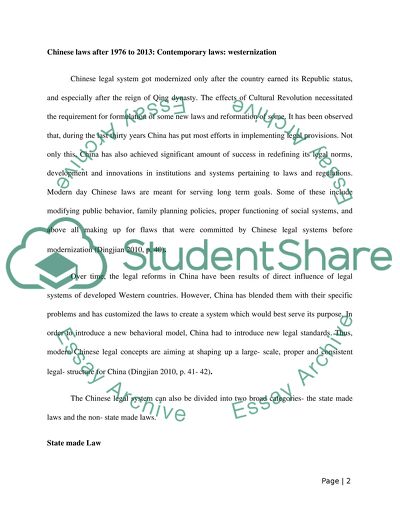Cite this document
(“Contemporary Chinese Law in Context Essay Example | Topics and Well Written Essays - 3000 words”, n.d.)
Retrieved from https://studentshare.org/law/1477988-contemporary-chinese-law-in-context
Retrieved from https://studentshare.org/law/1477988-contemporary-chinese-law-in-context
(Contemporary Chinese Law in Context Essay Example | Topics and Well Written Essays - 3000 Words)
https://studentshare.org/law/1477988-contemporary-chinese-law-in-context.
https://studentshare.org/law/1477988-contemporary-chinese-law-in-context.
“Contemporary Chinese Law in Context Essay Example | Topics and Well Written Essays - 3000 Words”, n.d. https://studentshare.org/law/1477988-contemporary-chinese-law-in-context.


